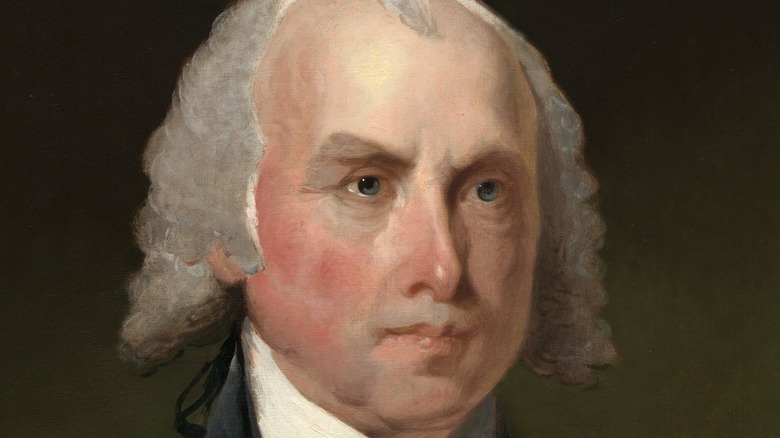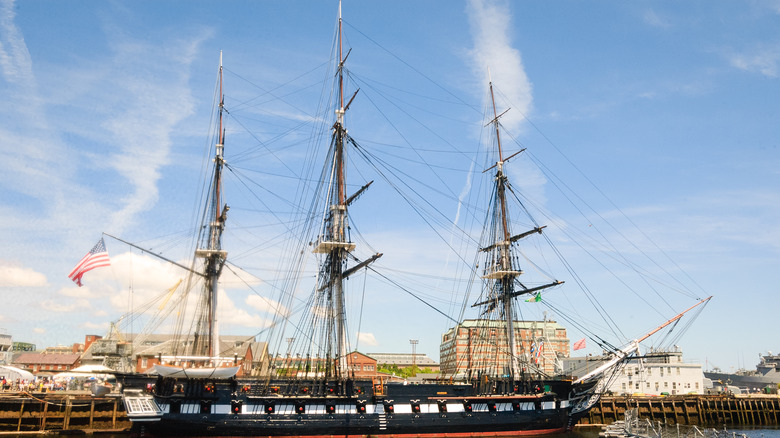This Was The First American President To Declare War
One of America's brightest minds, James Madison had the tremendous responsibility of guiding the country through its second war so early in its history. He had been an influential figure in establishing the country's legal and political foundation, earning him the nickname "Father of the Constitution" (via American Battlefield Trust). Madison had also shown his deft negotiation skills as Thomas Jefferson's Secretary of State, helping the country expand its borders with the Louisiana Purchase and navigate its relationships with other nations.
After winning election to the presidency in 1808, Madison found himself and the country at large in a series of conflicts with Great Britain. The main issues between the United States and its former adversary centered on trade and autonomy (via History). Great Britain was at war with France and it required that neutral countries get a special license from Great Britain before those countries could engage in trade with France. This trade restriction interfered with the United States' ability to act as an independent nation. Americans were also upset by the British practice of capturing American sailors and forcing them to serve in the Royal Navy. Frustrated with Britain, Madison essentially stopped all trade with the country in November 1810.
James Madison declared war on Great Britain
Great Britain responded to Madison's trade moves by refusing to budge on its position and insisting that it would continue to seize U.S. ships (via the Miller Center). As tensions rose between the two nations, the U.S. Congress began to make preparations for war. The Army Bill of January 1812 dramatically expanded the size of U.S. forces, but a similar effort to grow the U.S. Navy failed to pass (also via the Miller Center). On June 1, 1812, Madison sent a message to Congress, encouraging legislators to declare war on Great Britain (via Founders Online). He saw Britain's actions as "hostile to the United States, as an Independent and neutral nation."
In what was clearly a divided vote in the Senate, Madison won support for the declaration of war, with 19 senators in favor of the measure and 13 against it. Madison officially declared war on Great Britain on June 18, 1812. This military conflict has become known as Mr. Madison's War and the Second War for Independence. But unlike the Revolutionary War, the War of 1812 wasn't a decisive win for America. In fact, British forces managed to take over Washington, D.C., and burned many of the federal buildings, including the White House, in August 1814. Madison had to flee the city before it was invaded. The war ended with the signing of the Treaty of Ghent in December 1814.

